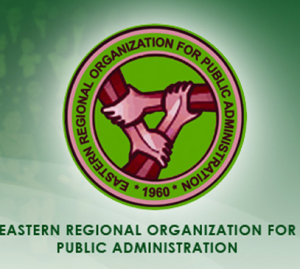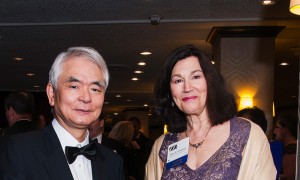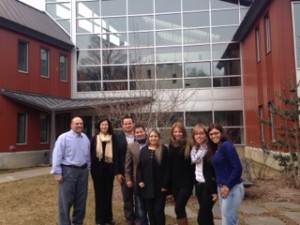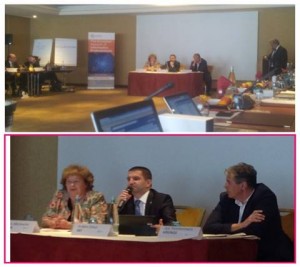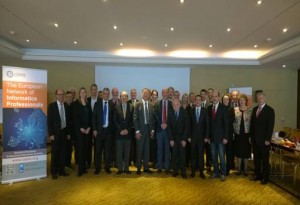
September 2014
Jane Fountain, Distinguished Professor in public policy and political science, was recently honored as a University of Massachusetts Amherst Research Next Spotlight Scholar. Research Next writes:
“For as long as there has been a virtual state, UMass Amherst Distinguished Professor of Political Science and Public Policy Jane Fountain has stood as an undisputed leader on the topic. As governments and large international organizations continue to learn how to adopt our rapidly evolving technology, Fountain provides the tools, consultation and expert analysis necessary to help them make best use of it.”
In 2001, Fountain published the seminal book, Building the Virtual State: Information Technology and Institutional Change, which outlines the American public sector’s path towards a fair, successful use of digital governance. As the book uses a rich collection of case studies to highlight the institutional and political hurdles to that success, in addition to the technological ones, the book remains a leading resource on the topic. It has been cited more than 1,200 times and translated into Chinese, Portuguese, Japanese, and Spanish. The Chinese translation is in its second edition.
“Dr. Fountain has done more than almost anyone to advance the study of digital government,” says Chancellor Kumble R. Subbaswamy. “Indeed, Dr. Fountain literally wrote the book that defined this field. This book is universally acknowledged as by far the best publication on its topic.”
In spring 2014, Fountain was named to the “Top Federal 100” by Federal Computer Week. She is one of only two academics to make the list. Soon after, she was also appointed to a three-year term on the Experts Advisory Committee of the E-Government Research Center of the Eastern Regional Organization for Public Administration (EROPA). Fountain is the only non-Chinese member of the approximately 10-member Experts Advisory Committee.
As founder and director of the National Center for Digital Government, Fountain has a long history researching and evaluating federal IT policies and practices. In 2013, she released a report through the Administrative Conference of the United States titled “
Examining Constraints To, and Providing Tools For, Cross-Agency Collaboration.” She also translated that work into a report for IBM’s Center for the Business of Government titled “Implementing Cross-Agency Collaboration: A Guide for Federal Managers.” Both examine how the traditionally divided federal bureaucracy has sought to become more collaborative in light of technological innovations. Her guidance on how to improve such collaboration has also earned her the title of “collaboration guru” by Federal Computer Week.
Since joining the UMass Amherst faculty in 2005, her research has focused on institutional perspectives on technology and governance, public organizations and institutional change, women and IT, and the intersection of science, technology and society. Fountain has received numerous awards and recognitions during her tenure, including election to the National Academy of Public Administration and selection as an Inaugural Senior Fellow of the Information and Politics Section of the American Political Science Association. She has also received two of the highest campus honors: the Chancellor’s Medal in 2012 and the 2010 Chancellor’s Award for Outstanding Accomplishments in Research and Creative Activity. Fountain is credited with a number of scholarly publications, including three co-edited volumes, 19 book chapters, 27 working papers, and numerous keynote addresses and conference presentations internationally. She has also served as principal investigator or co-principal investigator on $6.25 million in grants since joining UMass Amherst.
The impact of Fountain’s ideas stretches far beyond academic texts and grants, however. She serves as an appointee to the Governor’s Innovation Council of Advisors for the Commonwealth of Massachusetts and served on the American Bar Association’s Blue Ribbon Panel on e-Rulemaking. She has also been the chair, co-chair, and a council member of the World Economic Forum’s Global Agenda Council on the Future of Government, a leadership role working with government and corporate leaders in places such as Davos, Istanbul, Dubai and Vienna.
What’s next for Fountain? She remains dedicated to assisting governments around the world as they make the difficult transition to a more virtual state.
“It’s not an easy thing to take something as complex and variegated as a central government through what I think is a fairly significant transformation,” says Fountain. “For them to become infused with digital information, digital communications and all of the other tools that are available takes some reorganizing. My work is aimed at helping governments understand what their alternative paths are and to help them make more intelligent decisions.”
Article originally appeared on Research Next, available at http://www.umass.edu/researchnext/spotlight/virtual-state.




